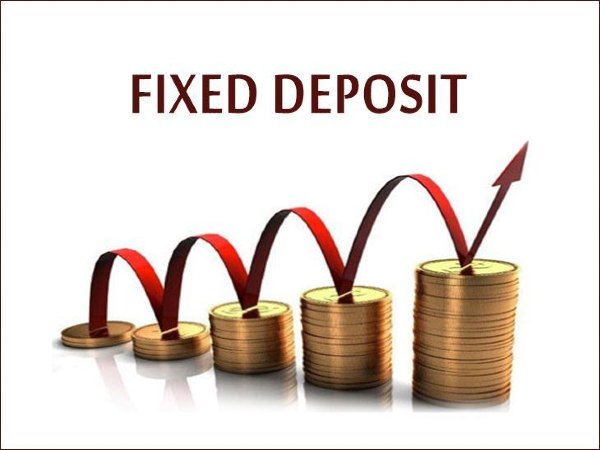Fixed Deposits – Benefits, Features & more
While starting your investment journey, it is common for you to have heard about FD and would have wondered about the FD’s full form. FD stands for Fixed Deposit, it can be categorized as an investment product that banks and non-banking financial institutions (NBFC) offer their clients to generate fixed returns on their capital.
What is a fixed deposit?
A customer parks a certain amount of money in a fixed deposit account opened by the financial institution for a set period at a fixed rate of interest. The interest rate is different between different financial institutions, but it’s generally more than the interest rates provided for savings accounts. The fixed deposit maximum period completely depends on your investment capacity as you have options available for various periods, from short-term of 7-14 days to a longer duration of 10 years. Because of the choice available in choosing the term, FD’s are referred to as term deposits.
Interest Rates of FDs
The types of interest offered by banks differ with the maturity and timeline chosen by the individual. While a fixed deposit account that is 7 days old offers a low-interest rate compared to an FD of a one-year term. This is primarily done to offset the risk of losing your money over time.
To help you calculate the interest earned by your FD, the following formula is used for calculation purposes:
The formula for calculation of the final amount applying the compound rate of interest is
A=P [1+(r/12)/100)]n
wherein:
- A is the amount at the end of the investing period
- P is the principle amount invested at the beginning of the investing period
- R annualized rate of interest, for example, 7, 8.5 or 9
- n is the tenure of investment
Types of Fixed Deposits
Having known about what is a fixed deposit account, it is time for you to know about the types of deposits. Let us look at the different types of deposits that are available in the market.
- Standard Term Deposits: FD accounts are normally available with all financial institutions, which require you to put up a sum for a set period and at a fixed interest rate. The period for investment or tenure may be from 7 days to 10-years, which the investor can choose. The amount of interest paid is proportional to the length of time invested and the financial institution providing this product.
- Senior Citizen Fixed Deposits: Those who are aged above 60 years old are eligible to invest in these FDs, offered by banks and NBFCs. Typically, they offer the highest interest rates of 25-50 basis points (0.25-0.50 percent) higher compared to other FDs. Also, they offer tax benefits which are also one of the main reasons for many senior citizens to park their retirement money in such FD’s.
- Tax-Saving Fixed Deposit: These FD’s are primarily aimed to help you save income taxes. The tax-saving FDs have an expiry date of 5 years or more, and the principal amount, up to Rs. 1,50,000 per annum can be claimed for tax deduction under section 80C of the Indian Income Tax Act.
- Recurring Deposit: A recurring deposit is a form of fixed deposit that allows you to invest a fixed amount of money every month for a specific duration. Although the interest rates are fixed, RD’s are more flexible than an FD that allows you to make a monthly deposit of Rs. 1,000 for the next five years. At the time of maturity, the interest on the total investment and interest accrued are paid out.
- Corporate Fixed Deposits: Similar to banks, certain corporate companies also offer fixed deposits which are called corporate fixed deposits, which provide a higher percentage of return than banks. However, though the rate of interest is high, it carries a higher risk of default compared to fixed deposits offered by banks.
- NRE Fixed Deposit: Non-resident Indian citizens are allowed to invest in foreign non-resident (NRE) or ordinary non-resident (NRO) permanent fixed deposits. NRE FDs are best suited for people who earn in foreign currency and want to invest in Indian FD’s. While there may be fluctuations in currency, the biggest advantage in NRE FD is that the total amount, including interest and principal, is tax-free.
Advantages of Fixed Deposits
There are multiple benefits of fixed deposits for those looking for a safe and decent amount of returns.
- If you choose to put your money in a fixed deposit, the term of the investment or the tenure and the interest rate is predefined, allowing you to visualize the number of returns you will receive.
- The safety associated with FDs opened in banks is higher than any other investment mode, reducing the risk of these instruments.
- You may use a fixed deposit to get loans from banks or NBFC.
- By investing in a fixed deposit, the financial institution assures to return the invested money at the time of maturity along with interest. This helps to plan and save income taxes beforehand, unlike other investment options that do not offer any such predictability.
Who can invest in FDs?
Fixed deposits were long considered as a safe avenue to park money that is not required at the moment. It is a good option for the following categories:
- People with a low risk-taking capability can choose to invest in these fixed deposits rather than any other investment products. It greatly reduces the risk and guarantees peace of mind since the return on FDs is higher than the interest gained through the money that is kept in the savings account.
- Fixed deposits are a very good choice to help individuals achieve their short-term goals without the fear of losing capital or fluctuating market conditions.
- Senior citizens who want to park their surplus or retirement money may choose fixed deposits as a source of safeguarding their hard-earned money as well as for tax saving purposes.
Fixed deposits should be a part of everyone’s investment portfolio as it offers diversification, safety, and assured returns for risk-averse investors. Moreover, in an era of digital banking, opening a fixed deposit is easier than before, so you can explore the possibility of opening an FD as soon as possible.





























